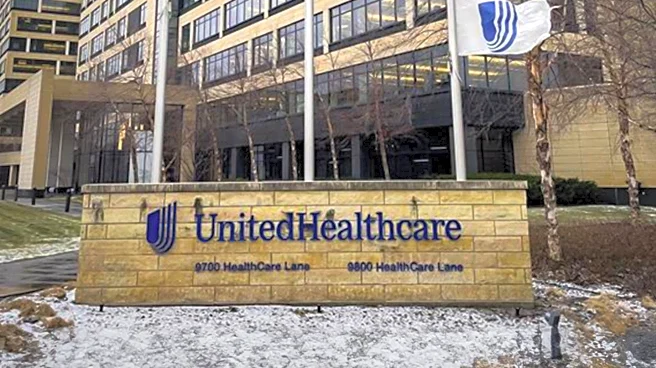What's Happening?
Specialist ADHD services for adults in England are ceasing to accept new patients due to overwhelming demand, according to a BBC investigation. The investigation revealed that 15 local areas have closed their waiting lists, while 31 others have tightened
criteria for access. Prof Anita Thapar, chair of NHS England's ADHD taskforce, described the situation as 'disturbing' and highlighted the 'enormous risks' for patients. ADHD affects brain function, leading to impulsivity and distraction, and is estimated to impact 5% of children and 3-4% of adults. Despite the potential for life-changing treatment, NHS data indicates average wait times of eight years for those already on waiting lists. The investigation found that some areas are innovating, such as Surrey, which is piloting a scheme to train private GPs for assessments and treatment.
Why It's Important?
The closure of waiting lists and restricted access to ADHD services could have significant implications for affected individuals and the healthcare system. Without timely diagnosis and treatment, individuals with ADHD may face increased risks of mental health issues, substance misuse, unemployment, and interactions with the criminal justice system. The situation underscores the historic neglect of ADHD within the NHS, as noted by Prof Thapar. The rising demand for services highlights the need for systemic changes to ensure adequate support for those with ADHD, potentially influencing future healthcare policies and resource allocation.
What's Next?
Prof Thapar is set to publish a report on Thursday, recommending an overhaul of ADHD support services. This report may prompt discussions on policy changes and resource allocation within the NHS to address the growing demand. Stakeholders, including healthcare providers and patient advocacy groups, are likely to react to the findings and push for improvements in service delivery. The pilot scheme in Surrey could serve as a model for other regions, potentially expanding access to assessments and treatment through private GP involvement.
Beyond the Headlines
The investigation highlights ethical concerns regarding equitable access to healthcare services. The disparity in service availability across regions raises questions about the fairness of the NHS system. Additionally, the reliance on private diagnoses and treatment options may exacerbate inequalities, as not all patients can afford private healthcare. Long-term, the situation may prompt broader discussions on healthcare funding and the prioritization of mental health services within the NHS.

















